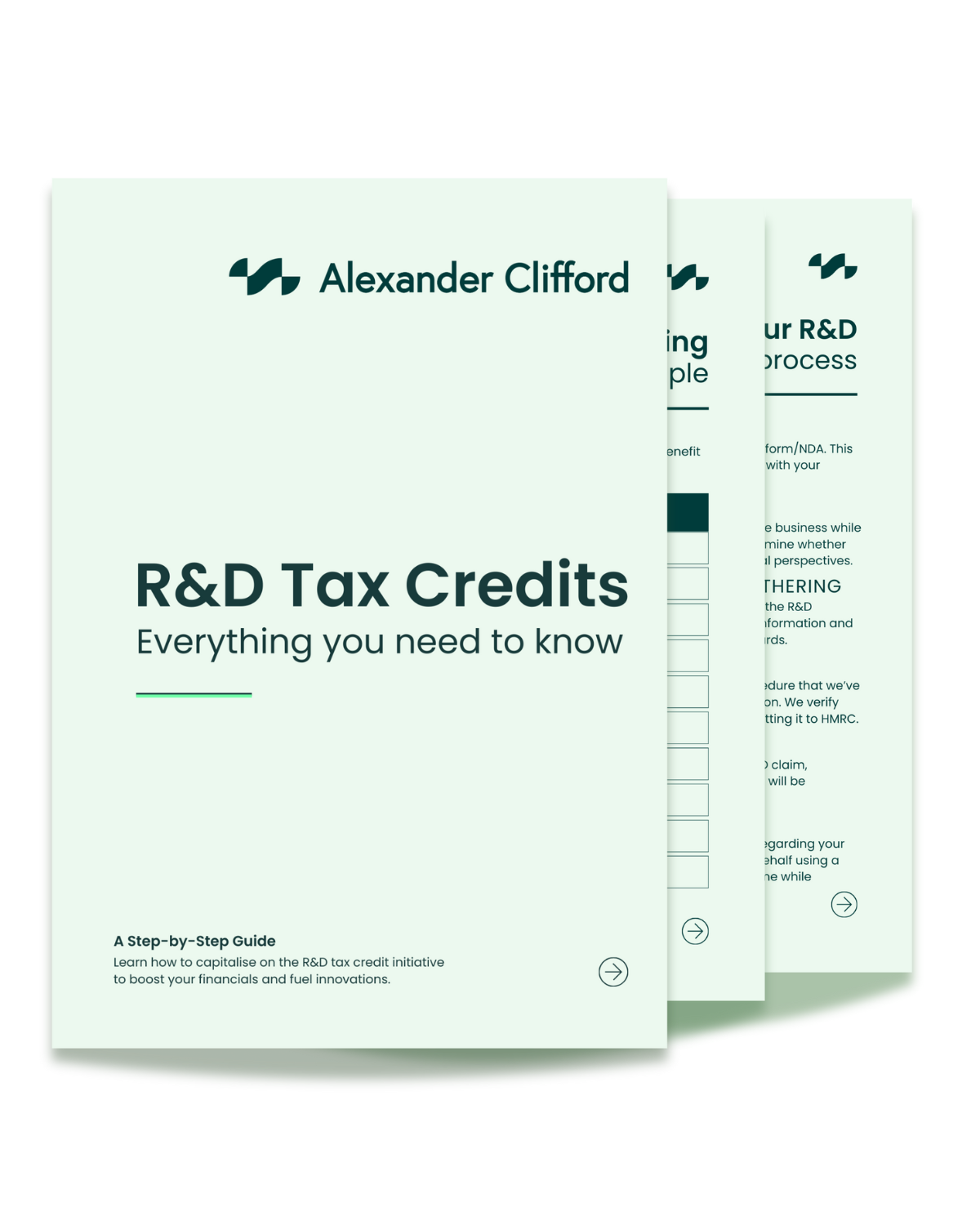Accountant or R&D Tax Specialist: Know the Difference

Having aligned with HMRC’s eligibility criteria, you’re ready to take the next step in your R&D claim. All that’s left is to decide whether to trust your accountant or an R&D tax credit specialist to manage your claim. To help you decide what’s best for your UK business, we’re investigating the differences between R&D specialists and accountants, and the importance of compliance.
Compiling an R&D tax credit claim can be time consuming, which is why many businesses turn to an accountant or a specialist. This then raises the question – which one is best equipped to handle your claim?
While accountants have a broad knowledge of the tax system, R&D tax credit specialists use their precise knowledge of the relief to ensure compliance with HMRC policy.
Are you thinking of outsourcing your claim management? Keep reading to see how your choice between accountants and specialists can have a major impact on your R&D claim.
What Does An Accountant Do?
Accountants play a vital role in finance by managing the financial health of businesses, organisations and even individuals. By ensuring compliance with the latest laws and regulations, accountants usually prepare financial reports that provide insights into their clients fiscal performance.
Their profession usually also involves the following:
- Assisting in tax planning
- Filing taxes
- Advising clients on budgeting
- Developing financial strategies
Essentially the role of an accountant is to provide expert advice that encourages informed financial decisions by ensuring clients adhere to financial regulations
Given their wide range of knowledge, accountants are incredible when it comes to understanding typical tax regulations and policies. This helps clients verify their financial accuracy.
What Does an R&D Tax Credit Specialist Do?
R&D tax credit specialists take a more direct approach by helping clients successfully claim R&D tax credits. Given their unique focus on one area of the tax system, specialists navigate HMRC R&D policy and legislation.
Specialists will usually aid clients in:
- Verifying qualifying technical uncertainties
- Identifying key expenditures
- Compiling necessary documentation
- Writing technical reports
Basically the role of an R&D tax credit specialist is to collaborate with innovative businesses that have been investing in qualifying research and development, to compile a compliant claim.
As their purpose is to establish accuracy in one area of finance, specialist advisors prioritise understanding the scope and limitations of the R&D tax credit initiative.
Why Understanding HMRC Policy is Important
As an innovative business preparing to claim R&D tax credits, you’re expected to adhere to HMRC’s R&D policy. The best way to do that is to understand the policy (or outsource your claim to people that do).
Truth is, claiming R&D tax relief means you have to:
- Ensure that your project meets eligibility requirements
- Provide relevant documents that support the claim
- Triple check that every figure in your financial records is accurate
And above all else, you have to make sure your claim aligns with the latest R&D guidelines.
So what happens if you don’t adhere to HMRC policy?
Well claims that don’t meet HMRC’s compliance standards, are subject to an enquiry.
Understanding HMRC Enquiries
With a duty to ensure the accuracy of claims, HMRC may challenge an R&D claim via an enquiry. This can happen for a variety of reasons. Considering the main purpose of the enquiry is to combat trial and error, the most common reasons for an HMRC enquiry are:
- Insufficient evidence
- Exaggerated costs
- Uncertainty about whether the project qualifies
For more information on HMRC enquiries, click here.
Get Specialist R&D Services With Alexander Clifford
At Alexander Clifford, we provide well rounded R&D tax credit services that help businesses profit from qualifying research and development.
Our team of R&D specialists take a meticulous approach to claims, ensuring that every qualifying activity and cost is accounted for, while upholding HMRC’s compliance standards. Using this approach, we’ve helped more than 2,400 clients retrieve significant R&D tax credit benefits – and now we’re ready to help prepare your claim.
Start your claim with R&D tax credit specialists by filling in the form below, or click here to book a meeting with a member of our team.
Book a quick call







